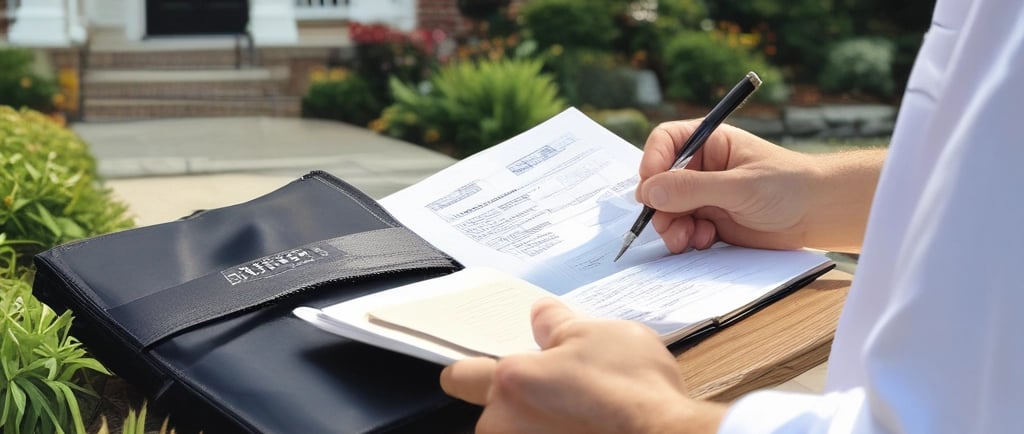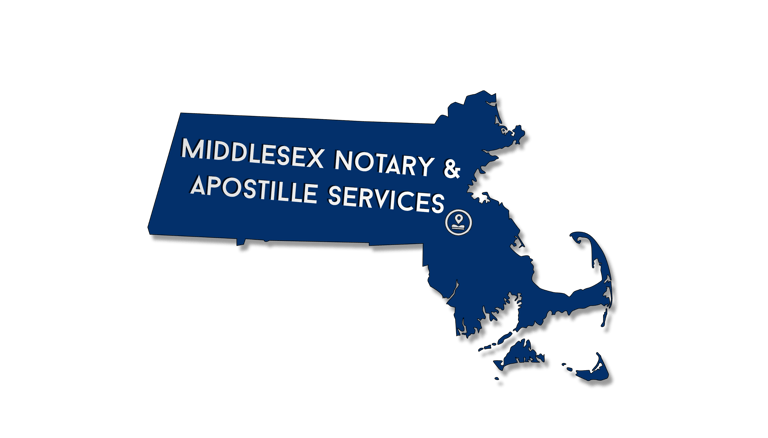Finding a Notary Near You in Massachusetts: A Comprehensive Guide
11/22/20254 min read


Understanding Notary Services and Their Importance
Notary services play an essential role in various legal and transactional processes by ensuring the authenticity of signatures on important documents. A notary public is a licensed official who acts as an impartial witness to the signing of documents, thereby verifying the identities of the individuals involved. This verification process is critical in preventing fraud and ensuring that all contractual agreements and legal documents are executed willingly and without any form of coercion.
In Massachusetts, as in many states, notaries are commonly called upon for a diverse range of transactions, including real estate deals, legal agreements, and medical directives. For instance, when purchasing a property, the presence of a notary is crucial to verify the identities of the buyers and sellers, ensuring that the transaction adheres to legal requirements. Furthermore, notaries provide assurance that essential documents, such as wills and powers of attorney, are signed in a safe and legitimate environment.
Finding a notary nearby is especially important for Massachusetts residents, given that immediate access to these services can significantly streamline various processes. Localities such as Woburn, Burlington, Winchester, Stoneham, Reading, and Boston have an array of notarial services available to cater to the public's needs. Whether it's a simple document signing or a more complex transaction, having a trusted notary within reach can facilitate a smoother experience. Additionally, understanding local regulations and accessibility to notary services can greatly enhance the efficiency of significant dealings that residents may encounter. Thus, the importance of locating a nearby notary cannot be understated, particularly when navigating vital life decisions and legal obligations.
Identifying Who Needs Notarization and When
Notarization serves a critical role in ensuring the authenticity and legal validity of documents. Individuals and organizations alike may require notarization for various purposes. Among the most common scenarios are private citizens executing important legal documents such as wills, power of attorney instruments, and loan agreements. In these instances, notarization provides a safeguard against fraud and enhances the credibility of the documents involved.
Business owners also frequently need the services of a notary. For instance, contracts and agreements related to business transactions often require notarization to be enforceable. This is particularly true for real estate transactions, where notary services authenticate deeds and ensure that property transfers are executed in accordance with state laws. Additionally, companies may seek notarization for employee records, corporate resolutions, and other official documents to maintain legal compliance and clear records.
Healthcare facilities represent another group that may require notarization services, particularly when dealing with patients unable to travel or sign documents themselves. In such situations, notaries can facilitate the execution of essential medical documents, ensuring patients’ wishes are respected and documented properly. This not only aids in establishing legal authority over medical decisions but also fosters trust among family members and healthcare providers.
Ultimately, having documents notarized is essential for validating their legal standing and helping prevent potential disputes in the future. Whether you are an individual preparing a will or a business owner executing a contract, understanding when notarization is necessary is vital to protecting your rights and interests. This knowledge empowers individuals to seek services efficiently, ensuring their documents withstand scrutiny and maintain their intended effect.
The Notarization Process in Massachusetts
The notarization process in Massachusetts is an essential procedure to ensure the authenticity of documents. Typically, the cost of notary services varies depending on the type of notarization needed, with fees generally ranging from $0.50 to $10 per signature, as determined by Massachusetts state law. Some notaries may charge additional fees for travel or mobile services, which can be especially relevant in situations requiring notarization at home, in hospitals, or nursing facilities.
For notarization to be valid, specific identification documents are generally required. Acceptable forms of ID include a government-issued photo ID such as a driver's license, passport, or military identification. It is highly recommended that clients present a reliable form of identification that clearly shows their name and photograph to avoid complications during the process. Having a second form of ID, like a bank card or another official document displaying your name, can also help expedite the experience.
One common pitfall to be aware of is the tendency for individuals to arrive without the necessary documents or incomplete paperwork. To ensure a smooth notarization, it is advisable to prepare the documents in advance, ensuring all required sections are filled out, leaving only the signature space open for signing in the presence of the notary. Additionally, confirming that the notary is authorized to perform the required service is crucial. Some notaries may specialize in certain types of documents, such as wills, powers of attorney, or real estate transactions.
For those unable to visit a notary in person, various solutions exist. Mobile notary services can often come to your location, making the process more convenient. Hospital and nursing facility notaries can provide essential support for patients or residents unable to travel. By understanding these options and being well-prepared, individuals can navigate the notarization process smoothly, saving time and avoiding common mistakes.
Common Mistakes, Helpful Tips, and Next Steps
When it comes to utilizing notary services in Massachusetts, individuals often encounter several common mistakes that can complicate the process. One frequent oversight is failing to ensure that all necessary documents are prepared adequately before the appointment. It is crucial to double-check that all forms are complete and that signers are present. Moreover, neglecting to verify the notary’s credentials is another misstep that can lead to complications. Every notary in Massachusetts is required to maintain a commission that confirms their qualifications. Therefore, it is advisable to ask for their notary seal and identification to validate their authority.
To facilitate a seamless appointment process, consider the following helpful tips. First, scheduling an appointment at a convenient time can help alleviate any undue stress. Confirming the notary's availability and discussing any fees upfront can also prevent misunderstandings later on. It is wise to bring additional identification, such as a driver's license or passport, as notaries may request further proof of identity. Additionally, inquire about the types of documents the notary specializes in, as this can significantly affect the efficiency of your appointment.
As residents navigate the complexities of notarial services, it is essential to adopt a proactive mindset. Verifying the notary's credentials, ensuring documents are complete, and discussing any potential issues before the appointment can lead to a more satisfying experience. For those in Massachusetts seeking reliable notary services, consider reaching out to Middlesex Notary Co. Their experienced professionals are dedicated to providing thorough assistance tailored to your location and needs. Taking the next steps toward securing notary support is crucial when required, and utilizing trusted services can make a noteworthy difference in ensuring all processes run smoothly.
Need notary?
Need a notary or apostille today? Fill out the form below and our team will get back to you within minutes.
Phone
(781) 226-8331
Available 24/7 — Call or Text Anytime
© 2025. All rights reserved.
